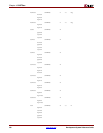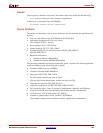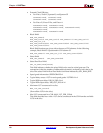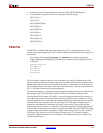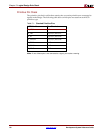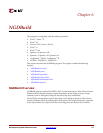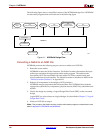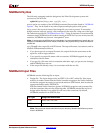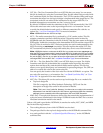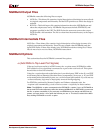
114 www.xilinx.com Development System Reference Guide
Chapter 5: Logical Design Rule Check
R
Logical DRC Checks
The Logical DRC performs the following types of checks:
• Block check
• Net check
• Pad check
• Clock buffer check
• Name check
• Primitive pin check
The following sections describe these checks.
Block Check
The block check verifies that each terminal symbol in the NGD hierarchy (that is, each
symbol that is not resolved to any lower-level components) is an NGD primitive. A block
check failure is treated as an error. As part of the block check, the DRC also checks user-
defined properties on symbols and the values on the properties to make sure they are legal.
Net Check
The net check determines the number of NGD primitive output pins (drivers), 3-state pins
(drivers), and input pins (loads) on each signal in the design. If a signal does not have at
least one driver (or one 3-state driver) and at least one load, a warning is generated. An
error is generated if a signal has multiple non-3-state drivers or any combination of 3-state
and non-3-state drivers. As part of the net check, the DRC also checks user-defined
properties on signals and the values on the properties to make sure they are legal.
Pad Check
The pad check verifies that each signal connected to pad primitives obeys the following
rules.
• If the PAD is an input pad, the signal to which it is connected can only be connected to
the following types of primitives:
♦ Buffers
♦ Clock buffers
♦ PULLUP
♦ PULLDOWN
♦ KEEPER
♦ BSCAN
The input signal can be attached to multiple primitives, but only one of each of the
above types. For example, the signal can be connected to a buffer primitive, a clock
buffer primitive, and a PULLUP primitive, but it cannot be connected to a buffer
primitive and two clock buffer primitives. Also, the signal cannot be connected to both
a PULLUP primitive and a PULLDOWN primitive. Any violation of the rules above
results in an error, with the exception of signals attached to multiple pull-ups or pull-
downs, which produces a warning. A signal that is not attached to any of the above
types of primitives also produces a warning.



